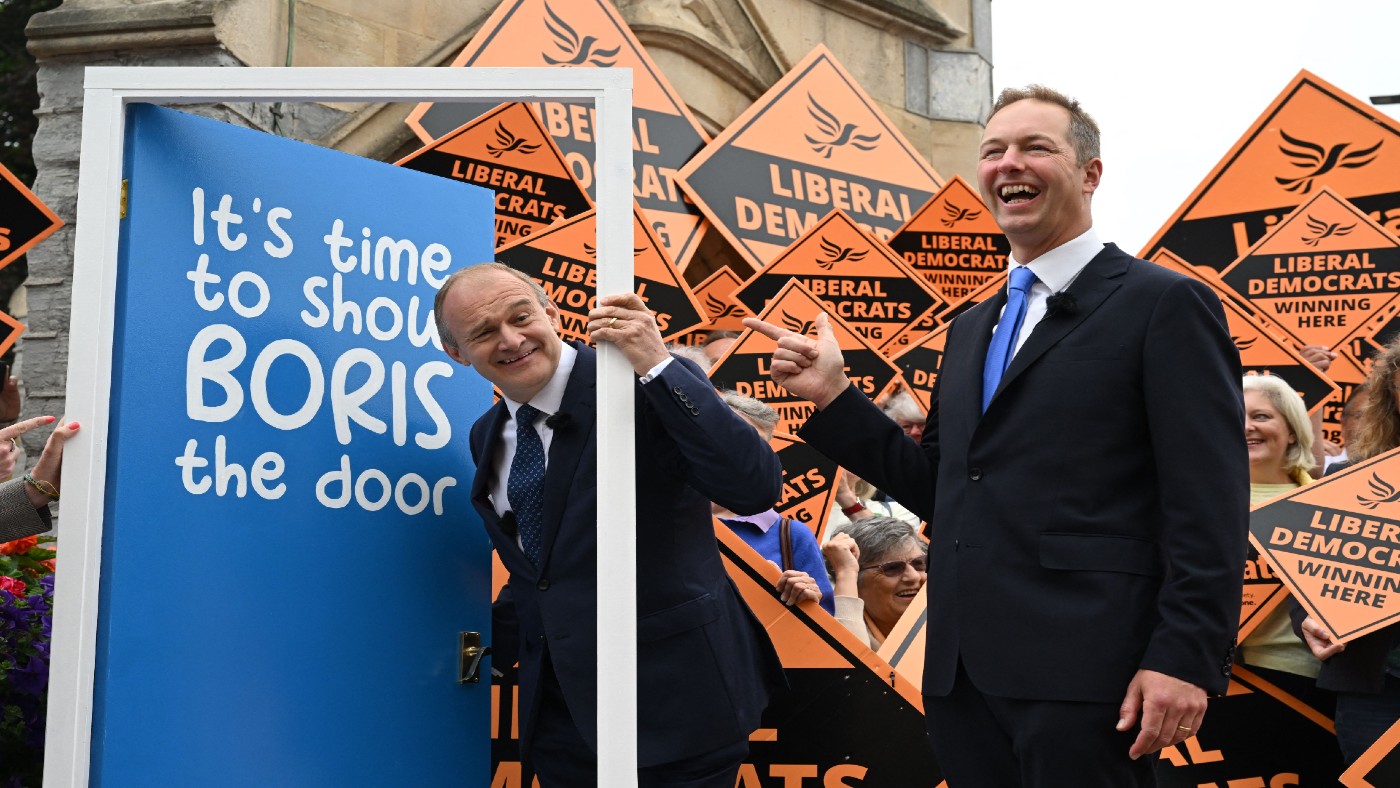Is tactical voting a threat to the Tories?
Pundits argue it’s ‘back with a vengeance’ – and could transform the electoral arithmetic

A free daily email with the biggest news stories of the day – and the best features from TheWeek.com
You are now subscribed
Your newsletter sign-up was successful
A Liberal Democrat canvasser found himself in a quandary last week as he made a final push before the by-election in Tiverton and Honiton, said Toby Helm and Michael Savage in The Observer. Every vote was crucial, yet the house in front of him had a huge Labour poster in front of it. Was it even worth knocking? He decided to give it a go – and was delighted to find that although the homeowner had intended to vote Labour, she had decided to switch to the Lib Dems.
She was just one of many Labour supporters who made that choice, helping the Lib Dems win the Tory stronghold. In Wakefield, Lib Dem voters returned the favour, and helped Labour’s candidate to victory. These voters had worked out for themselves how to punish the Tories. “No pacts, no deals: just common sense.” If this tactical voting catches on at the next election, the Conservatives will be in trouble.
‘Back with a vengeance’?
We haven’t witnessed much of this sort of thing for the past decade, said Peter Kellner in The Guardian. Labour voters were loath to lend any support to a party that had gone into coalition with the Tories, while Lib Dem voters were too opposed to Jeremy Corbyn. But tactical voting is “back with a vengeance”, and it could transform the electoral arithmetic.
The Week
Escape your echo chamber. Get the facts behind the news, plus analysis from multiple perspectives.

Sign up for The Week's Free Newsletters
From our morning news briefing to a weekly Good News Newsletter, get the best of The Week delivered directly to your inbox.
From our morning news briefing to a weekly Good News Newsletter, get the best of The Week delivered directly to your inbox.
I’m not so sure, said Peter Hitchens in The Mail on Sunday. Voters often lend support to other parties in by-elections, but they tend “to troop back to their tribal banners” at general elections.
It’s true that by-election voting patterns are never replicated exactly in national polls, said Philip Collins in The New Statesman. Some of the Tories’ worst by-election losses (Christchurch in 1993, for example, or Corby in 2012) reverted to being Tory seats at the subsequent general election. But if the “unspoken pact” between Labour and the Lib Dems holds at all when the country next goes to the polls, “which it surely will, then the Tories are going to come second in a lot of places”.
Almost all the seats being targeted by Labour and the Lib Dems are held by the Conservatives, which makes them particularly vulnerable to tactical voting. Add in the fact that “there are a lot of people who really do want Boris Johnson out”, and it doesn’t augur well for the Tories.
A free daily email with the biggest news stories of the day – and the best features from TheWeek.com
-
 What to know before filing your own taxes for the first time
What to know before filing your own taxes for the first timethe explainer Tackle this financial milestone with confidence
-
 The biggest box office flops of the 21st century
The biggest box office flops of the 21st centuryin depth Unnecessary remakes and turgid, expensive CGI-fests highlight this list of these most notorious box-office losers
-
 What are the best investments for beginners?
What are the best investments for beginners?The Explainer Stocks and ETFs and bonds, oh my
-
 How corrupt is the UK?
How corrupt is the UK?The Explainer Decline in standards ‘risks becoming a defining feature of our political culture’ as Britain falls to lowest ever score on global index
-
 Democrats push for ICE accountability
Democrats push for ICE accountabilityFeature U.S. citizens shot and violently detained by immigration agents testify at Capitol Hill hearing
-
 Fulton County: A dress rehearsal for election theft?
Fulton County: A dress rehearsal for election theft?Feature Director of National Intelligence Tulsi Gabbard is Trump's de facto ‘voter fraud’ czar
-
 ‘Melania’: A film about nothing
‘Melania’: A film about nothingFeature Not telling all
-
 The Mandelson files: Labour Svengali’s parting gift to Starmer
The Mandelson files: Labour Svengali’s parting gift to StarmerThe Explainer Texts and emails about Mandelson’s appointment as US ambassador could fuel biggest political scandal ‘for a generation’
-
 Greenland: The lasting damage of Trump’s tantrum
Greenland: The lasting damage of Trump’s tantrumFeature His desire for Greenland has seemingly faded away
-
 Minneapolis: The power of a boy’s photo
Minneapolis: The power of a boy’s photoFeature An image of Liam Conejo Ramos being detained lit up social media
-
 The price of forgiveness
The price of forgivenessFeature Trump’s unprecedented use of pardons has turned clemency into a big business.